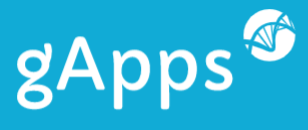10 Things your boss should know about mHealth
mHealth is the step forward that gives the patient a better opportunity to access healthcare at their fingertips. It gives the ability to monitor, educate and facilitate management of medical conditions from home and through devices that we are all familiar with using. Going to see an actual doctor is often inconvenient and is something that an employee might not want to have to explain or to ask for time off for. Far better that patients take responsibility for some of the management of a medical condition themselves with a back-up of medical care.
So here are ten things that your boss needs to know about mHealth and why it is unquestionably the way ahead.
- mHealth, while commonly used as an interactive app, in its broadest application, can attach to a pocket, to a wrist, to clothing, to underwear or directly onto the skin to monitor health.
- mHealth can offer a future where there is individual self-determination providing a positive impact on the user’s individual health and the health of the public at large.
- mHealth can offer a future that will motivate employers, policymakers, and other professionals to create guidelines and situations that both support and promote healthy behaviour.
- mHealth will allow for a freer flow of information, within and outside any health care system.
- mHealth will contribute to a future that encourages health care providers to put real value on patients and on their data.
- mHealth will create a future that builds respect and trust between patients and their health care providers as well as competence in technology-supported self-and shared management of all aspects of health care.
- mHealth will make use of social media for greater and more effective communication.
- mHealth will allow for the combination of supporting health and delivering health care information for individuals and for the wider community. That information will be accessed from diverse sources, and can also include non-clinical information.
- mHealth will promote technology that can map and show trends in health status, and will highlight any deviations from the norm for any given person in any given scenario.
- mHealth will promote user friendly technologies that assimilate health activities and treatment into the rest of a patient’s life.
Finally in February 10, 2014, the Apple iStore contained almost 30,000 health & fitness apps, and over 23,000 medical apps. Many are free, some cost a few pence and others cost a substantial amount. They perform many different functions, but there is one thing all mHealth apps have in common: they all collect information about us and impart vital information to us as users and to medical professionals as they assess health and monitor treatment.
There is no doubt that mHealth solutions are already part of the future for our health and well-being but there are still many organisations involved int he healthcare sector that have yet to develop an effective mHealth strategy to help them capitalise on the opportunities that this exciting area of digital can offer .

